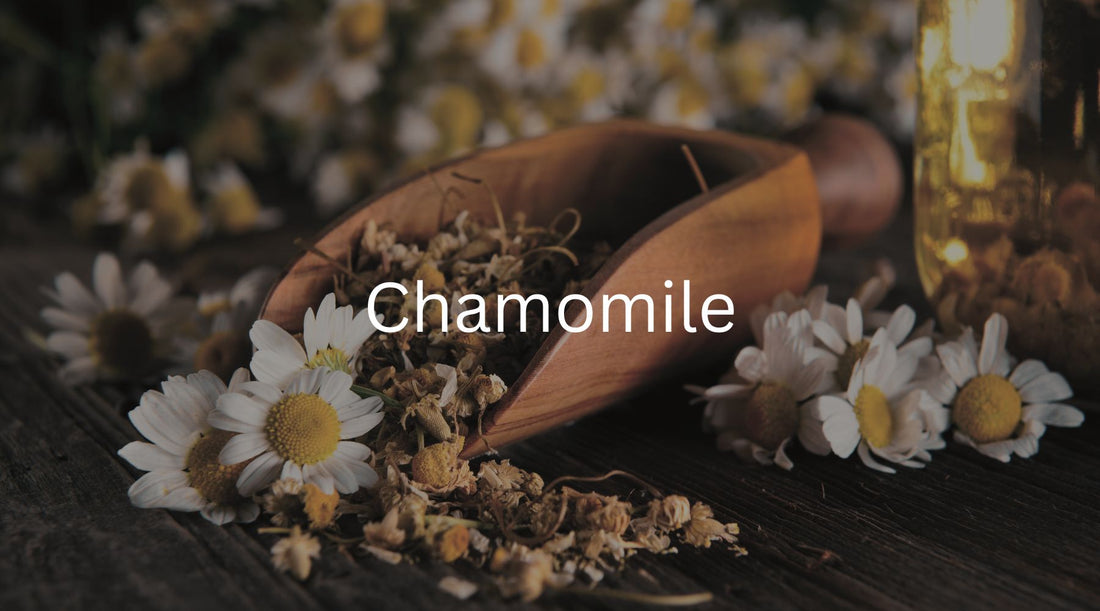Chamomile is not only a beautiful flower, but also a powerful natural remedy for many health issues, especially mental health issues like anxiety. The use of this herb over the centuries has involved a multitude of applications for mind and body health.

Historical and Cultural Background
Chamomile is a type of herb that has been used for centuries for various purposes. It is most commonly known for its soothing and relaxing effects, especially as a tea.
When it comes to the herbal infusion, chamomile tea is made from the dried flowers of the plant, which have a sweet and floral aroma. It has also been used as a natural remedy for various ailments, such as insomnia, anxiety, digestive problems, skin irritations, and inflammation.
There is a long history of cultural and religious significance in many parts of the world when it comes to the use of chamomile. For example, in ancient Egypt, chamomile was considered a sacred gift from the sun god Ra and was used to treat fever and malaria.
In medieval Europe, chamomile was associated with protection and luck and was often planted in gardens or hung in homes to ward off evil spirits. In some folk traditions, chamomile was also believed to have magical properties, such as enhancing love, attracting money, or inducing dreams.

Benefits of Chamomile
Chamomile is a herb that has been used for centuries as a natural medicine. Its application has spanned a variety of uses and still today is a widely used herb for insomnia and quality sleep.
Physical Health
It has anti-inflammatory, antioxidant, and antispasmodic properties, which means it can help with pain, inflammation, and muscle spasms. Like most uses of herbs for mental and physical benefits, a few of these positive outcomes may take a few weeks. Yet. you will be surprised how quickly it works on things like insomnia and anxiety.
Anxiety and Depression
Chamomile can help with anxiety by improving sleep quality, relaxing the muscles, reducing blood pressure, and enabling a state of relaxation. Chamomile can also help with depression by boosting mood and reducing stress.
How does chamomile work for anxiety? Well, one of the main compounds in chamomile is called apigenin, which is a flavonoid that has some of the same effects as benzodiazepines, an anti-anxiety medication. Apigenin binds to certain receptors in the brain that regulate mood, sleep, and cognition. By doing so, apigenin can reduce anxiety symptoms like insomnia, irritability, and nervousness.
There is scientific evidence to back up the benefits of chamomile for anxiety. For example, a study published in 2014 in the Journal of Clinical Trials found that long-term chamomile therapy was safe and effective for reducing symptoms of generalized anxiety disorder (GAD), a common mental disorder that affects millions of people worldwide. The results showed that chamomile extract significantly reduced anxiety symptoms.
Another study published in 2016 in the journal Phytomedicine found that chamomile extract was effective for reducing symptoms of co-occurring anxiety and depression. The results showed that chamomile extract significantly reduced both anxiety and depression symptoms compared to placebo, and also improved physical and mental well-being.

So how can you enjoy the benefits of chamomile for yourself?
One of the easiest and most delicious ways is to make your own chamomile tea at home. All you need is some dried chamomile flowers (you can buy them online or at your local health food store), some hot water, and a teapot or infuser. Here are the steps to make your own chamomile tea:
- Boil some water in a kettle or pot.
- Put about one tablespoon of dried chamomile flowers per cup of water in your teapot or infuser.
- Pour the hot water over the chamomile flowers and let them steep for about 5 minutes.
- Strain the tea into your cup and enjoy!
You can add some honey, lemon, or milk to your chamomile tea if you like, but I prefer it plain. I like to drink it before bedtime to help me relax and sleep better.
Options
When it comes to picking the right tea for the right moment, it is really up to your preferences.
Try our Cozy Chamomile for its combination of chamomile with other herbs that support the mind and body.
Precaution
When drinking herbal tea for anxiety or stress, it's important to remember that it's not a substitute for professional help. If you're struggling with mental health issues, it's important to seek help from a qualified healthcare provider. Herbal tea can be a supportive addition to your treatment plan, but it's not a replacement for professional care.
Citations
- Link Herbs for Anxiety: Does it work?
- Link - Long-term Chamomile (Matricaria chamomilla L.) treatment for generalized anxiety disorder: A randomized clinical trial
- Link - Review of bioactivity and potential benefits of chamomile tea
- Link - Herbal medicine of the past with bright future
- Link - Chamomile and Sleep
- Link - a randomized and controlled Chamomile and oil and GAD
- Link - Long-term chamomile (Matricaria chamomilla L.) treatment for generalized anxiety disorder: A randomized clinical trial

